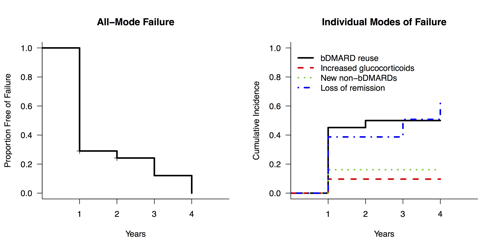Session Information
Session Type: Abstract Submissions (ACR)
Disclosure:
K. Yoshida,
None;
M. Kishimoto,
Santen Pharmaceutical, Mitsubishi Tanabe Pharma, Pfizer, and Abbott Japan,
8;
H. Radner,
None;
K. Matsui,
None;
M. Okada,
Santen Pharmaceutical, Mitsubishi Tanabe Pharma, Pfizer, and Abbott Japan,
8;
Y. Saeki,
Tanabe-Mitsubishi Pharmaceutical Co., Ltd, Chugai Pharmaceutical Co., Ltd., Janssen Pharmaceutical Co., Ltd., Nippon-Kayaku Co., Ltd., and Nichi-Iko Co., Ltd,
2;
D. H. Solomon,
Eli Lilly, Amgen, and CORRONA,
2,
UpToDate,
7,
Pfizer, Novartis, and Eli Lilly,
6;
S. Tohma,
Pfizer Japan Inc., Eisai Co., Ltd, and Chugai Pharmaceutical Co., Ltd,
2.
« Back to 2014 ACR/ARHP Annual Meeting
ACR Meeting Abstracts - https://acrabstracts.org/abstract/high-rates-of-failure-after-biological-dmard-discontinuation-while-in-remission-in-a-japanese-multi-center-registry/

